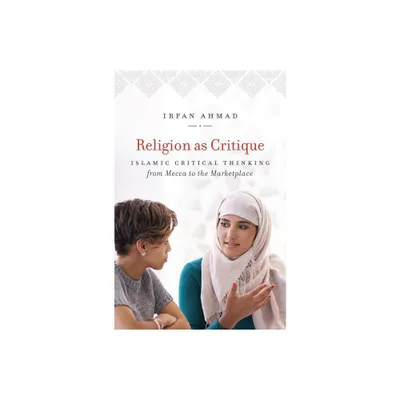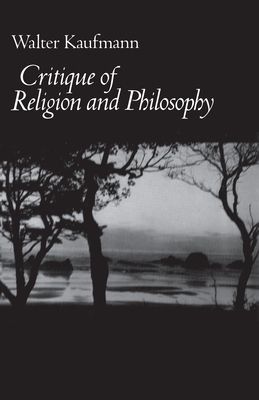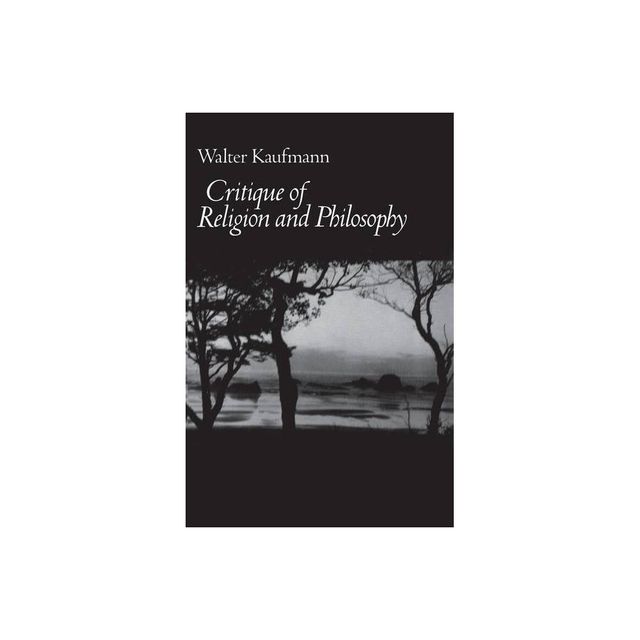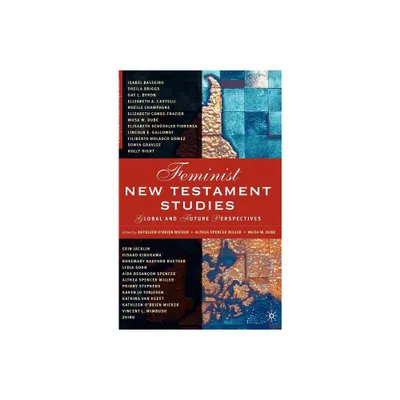Home
Key Categories the Study of Religion: Contexts and Critiques
Loading Inventory...
Barnes and Noble
Key Categories the Study of Religion: Contexts and Critiques
Current price: $100.00


Barnes and Noble
Key Categories the Study of Religion: Contexts and Critiques
Current price: $100.00
Loading Inventory...
Size: Hardcover
*Product Information may vary - to confirm product availability, pricing, and additional information please contact Barnes and Noble
Key Categories in the Study of Religion
explores the symbiotic relationship between context and critique. This volume centers on four key contextual categories that stand at the heart of the academic study of religion: citizenship and politics, class and economy, gender and sexuality, and race and ethnicity. The contributors to this volume investigate the ways that method, theory, and data are mobilized via context as a primary impetus for critical analysis.
Using these key categories, this volume brings together diverse data domains to explore the similarities and differences that emerge when one theoretical framework moves from domain to domain. In the same way that scholars have argued against an essentialist understanding of "religion," these categories of analysis should be employed within the matrix of their social, cultural, and ideological contexts.
Each of the four parts begins with an orienting essay that investigates a category, analyzing the construction of categories in academic literature, arguing either for or against scholarship carried out in that vein, and exploring its implications for the study of religion. Each essay is followed by response chapters that highlight diverse contexts: subjects, fields, and methods. Each response chapter extends the orienting essay's conclusions by offering novel analysis vis-à-vis the scholarly expertise and subject matter of its author. These responses underscore instances of congruence and difference to further refine our understanding of forms of critique relevant to each category.
explores the symbiotic relationship between context and critique. This volume centers on four key contextual categories that stand at the heart of the academic study of religion: citizenship and politics, class and economy, gender and sexuality, and race and ethnicity. The contributors to this volume investigate the ways that method, theory, and data are mobilized via context as a primary impetus for critical analysis.
Using these key categories, this volume brings together diverse data domains to explore the similarities and differences that emerge when one theoretical framework moves from domain to domain. In the same way that scholars have argued against an essentialist understanding of "religion," these categories of analysis should be employed within the matrix of their social, cultural, and ideological contexts.
Each of the four parts begins with an orienting essay that investigates a category, analyzing the construction of categories in academic literature, arguing either for or against scholarship carried out in that vein, and exploring its implications for the study of religion. Each essay is followed by response chapters that highlight diverse contexts: subjects, fields, and methods. Each response chapter extends the orienting essay's conclusions by offering novel analysis vis-à-vis the scholarly expertise and subject matter of its author. These responses underscore instances of congruence and difference to further refine our understanding of forms of critique relevant to each category.


















